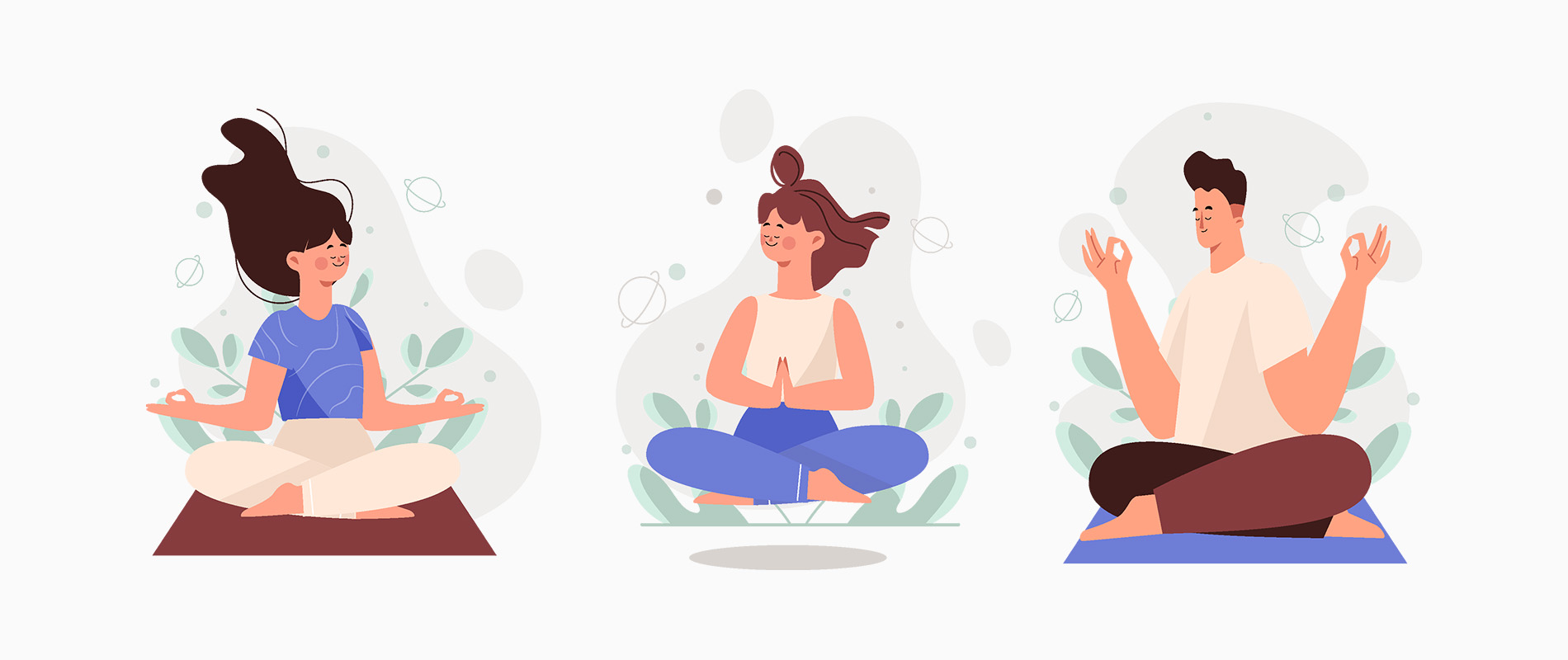‘Vipassana is the art of living. Not the art of escaping.’
– S.N. Goenka.
Vipassana, in Pali, means ‘special seeing’, that can mean insight– looking inward and exploring the self. In simple terms, Vipassana meditation is a mindfulness meditation wherein the practitioner is asked to be aware of what is going on within the body and the mind.
What is Vipassana Meditation?
There are 2 types of meditation practices in Buddhism. One is Samatha– practicing meditation to calm one’s mind. Another is Vipassana– practicing meditation to gain insight.
At times, when we experience unpleasant, embarrassing thoughts, we tend to distract ourself to prevent the hurt that can be caused by those thoughts. However, the exact opposite is done in Vipassana meditation. The most important part of Vipassana meditation is to not let the mind wander, and to bring it back to attention even if it does wander. As simple as it may sound, initially it might get difficult to take control of your mind.
Vipassana is a form of meditation in which a person observes themself as they are, in a non-judgmental way. It is different from other forms of meditation like visualization or chanting mantras. In these types of meditation, the mind is made to actively focus on one thing like- chanting the mantra or visualizing according to the guide and go with the flow. However, in vipassana meditation, one only needs to observe the inner self, the reality, without forcing to control the experience.
Vipassana meditation works on equanimity. Equanimity denotes having an even mind or balanced mind. It means to take in/observe both pleasant and unpleasant thoughts or sensations and not having a reaction to it. It is like knowing that sitting in a certain position is hurting you, but not changing it to alleviate the pain, that is, not reacting to the hurt but simply observing it. Sounds tough, doesn’t it? But that is the beauty of this meditation, it makes you go deeper into the zone, but by taking only one step at a time.
Things one need to know about learning Vipassana meditation:
- Vipassana retreat: If you are a beginner, then you must practice Vipassana meditation under supervision and going on vipassana retreat is a great way to do so. The time span of the retreat varies from 3 days to 3 months, but most common retreat for beginner’s is of 10 days.
- Vow of silence: The most important part of Vipassana meditation is taking a vow of silence for the time span spent during the retreat. This is done to avoid any kind of communication with other participants, so that their experience won’t affect yours and you will be able to focus only on yourself. Having eye contact with other participants may also be prohibited as it comes under non-verbal communication.
- The 5 rules: One is supposed to follow the 5 precepts while practicing Vipassana meditation which are- Not to lie, not to kill, not to steal, abstain from sexual activity and not to use intoxicants.
- No phones and no journaling: During the retreat, you are asked to submit your phone so as to let go the contact with the outer world. You are also refrained from journaling your thoughts or listening to music etc. to avoid any sorts of distraction.
How does practicing Vipassana meditation help you?
To understand the benefits of Vipassana meditation, let’s look at it as a journey with and within yourself. With, because you are the only one on this journey to know yourself better. Within, because you are trying to observe every small sensation that goes inside you and try to be okay or non-reactive towards it.
In this world, we thrive to be perfect, which includes being superior in every task, not letting anything or anyone affect you, showing people how perfect you are on the outside but not acknowledging what goes on inside, perfecting the act of masquerading true feelings and emotions. In short, being perfect in everything. The Vipassana meditation journey makes you more accepting of yourself. It creates more awareness within you so you understand what is going on around you and vice versa. It helps you to accept yourself as a human being who makes mistakes, gets awkward easily, shows every emotion without any barrier; an imperfect human being, as it should be.
Of course, this journey is going to be full of ups and downs. But once you reach the destination, you’ll reminisce the journey and be grateful for it.
If this article has sparked some intrigue, and if you want to know more about Vipassana meditation, then you would love to attend our webinar where experts are going to shed some more light on the practice of Vipassana meditation.










